What are Boolean Operators? How To Teach Them + Examples
Searching through a database or search engine can often be frustrating. Finding what you’re looking for can take an endless string of queries with no fruitful results. You might have failed to find a relevant result after a laborious search, only to find what you’re looking for days later while performing a curious search with a different search term.
This means the correct search result didn’t show up earlier, although the information was always available in the database. So, what went wrong? It has to be the search term you used. This is why Boolean Operators are so essential to use in your search terms. If you’re an educator, you might want to learn how to teach Boolean Operators to your students, to help them quickly browse through a database or an internet search engine.
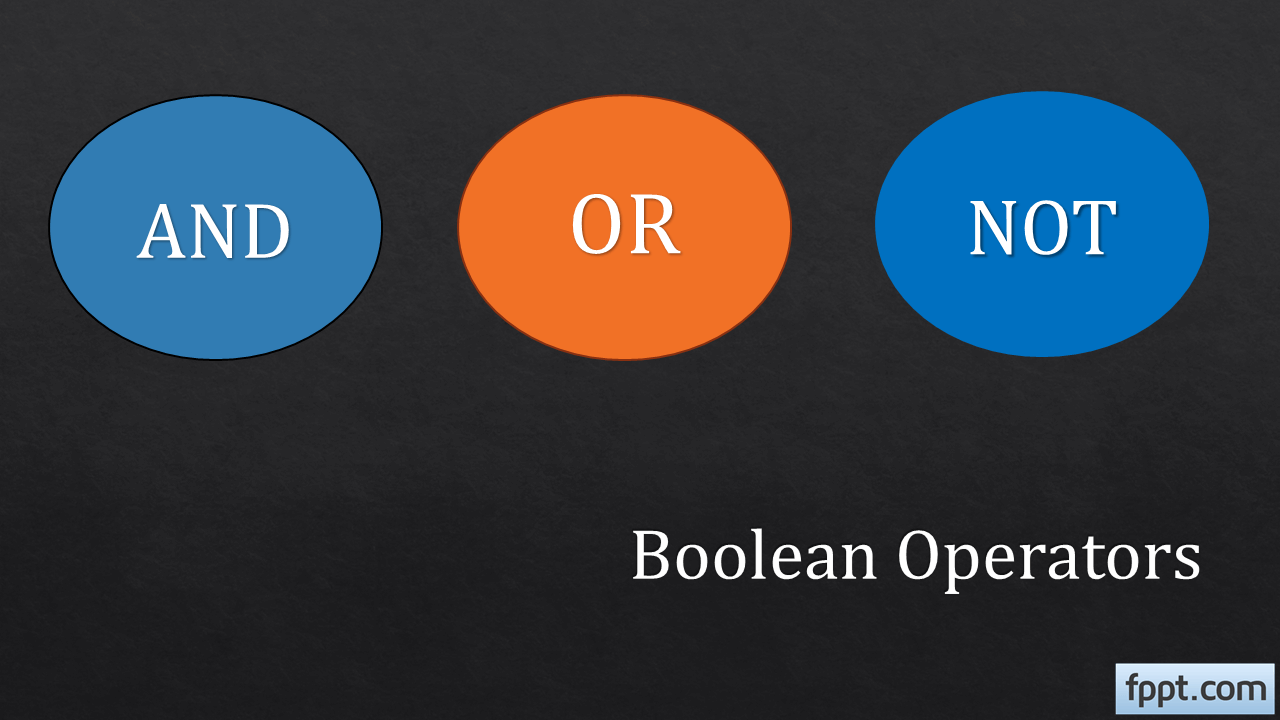
What are Boolean Operators?
Boolean aka bool operators were the brainchild of George Boole, who was a mathematician and is hailed as a computer pioneer. His work, such as the Boolean Algebra became the basis for digital circuits.
Boolean Operators are connecting key terms used to make your search terms more connected, for better search results. This includes terms like AND, OR and NOT. These terms are used for making searches more relevant in computer programming and for online search engines. Hence, using the aforementioned can help refine a search and give better results by connecting and defining the relationship between search terms.
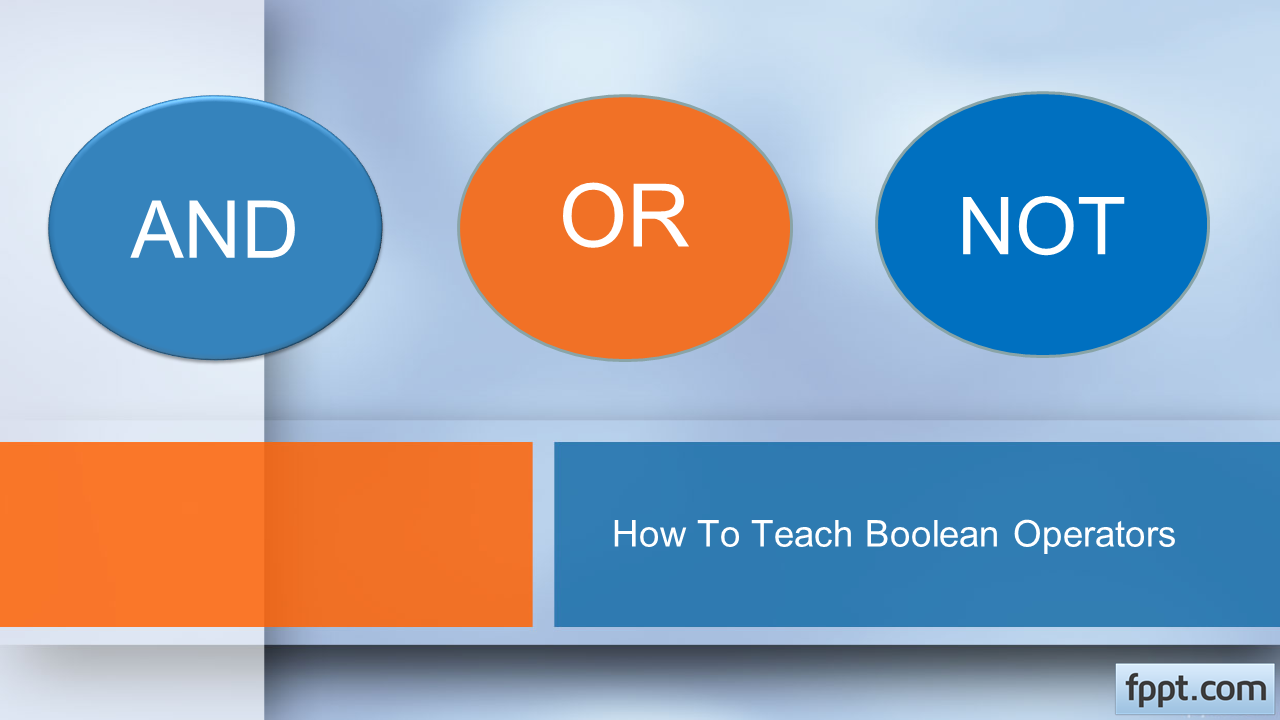
How to Teach Boolean Operators
Let’s take a look at the relevance of AND, OR and NOT to help you understand how to teach Boolean Operators for a better understanding of browsing a database.
AND
AND is used to narrow down searches. When you use AND between search terms, you will get only those results which contain the used search terms.
Example: Internet AND Security.

OR
OR is used to enhance your search term by connecting two or more than two synonyms. Using OR can help you broaden your search by specifying additional keywords with the same meaning.
Example: Automobile OR Car.
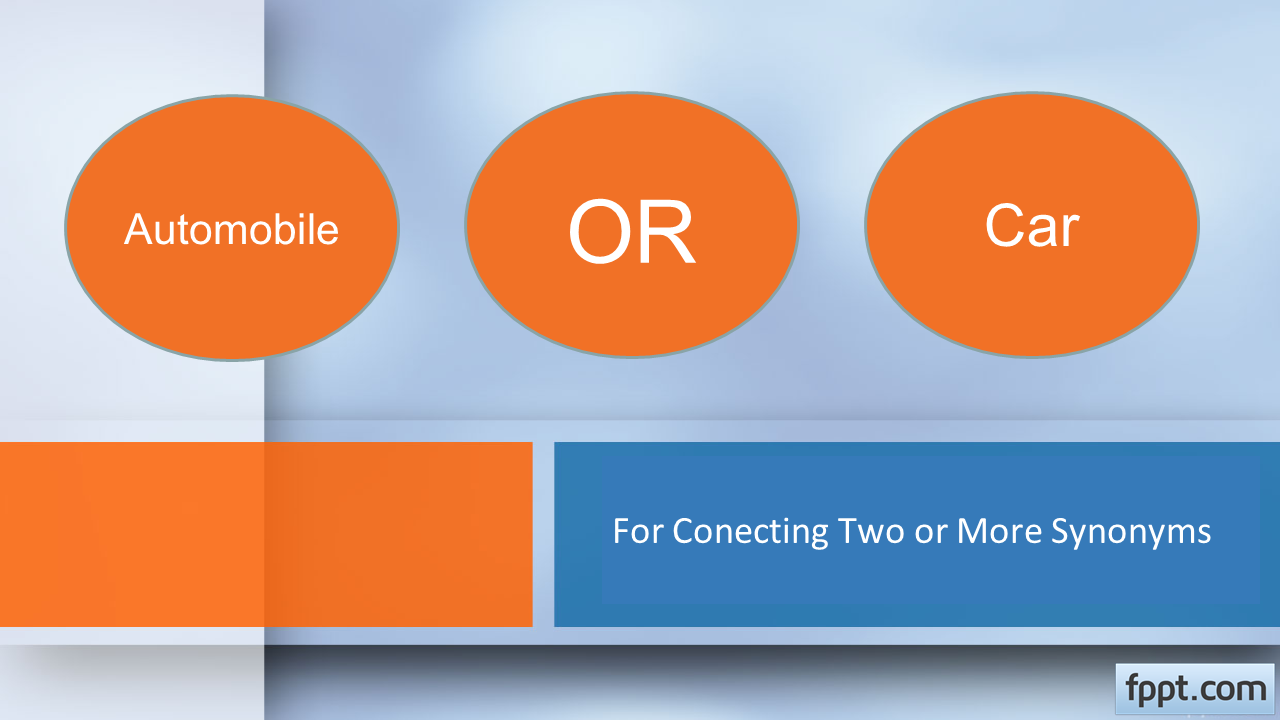
NOT
You can use NOT to exclude a search term or terms from your search result to refine your search to remove unwanted information from being searched.
Example: Technology NOT Mobile Technology

Using Boolean Operators Together
You can also use Boolean Operators together to refine your searches.
Example 1: Italy NOT Politics OR Sports
The above term will help search for Italy and exclude search terms about politics and sports.
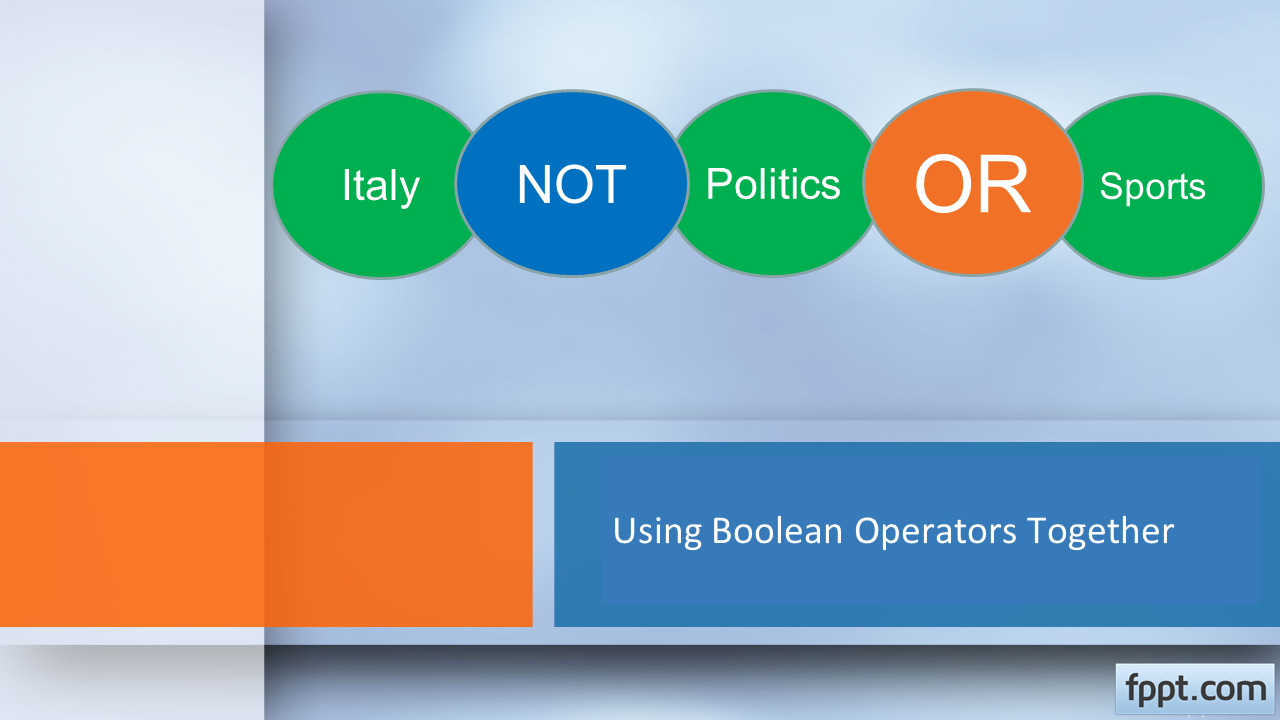
Example 2: Man OR Men AND Fitness
This is another example of how you can use Boolean operators together. In the example above, a search for fitness related information for men can be singled out using OR for synonyms and AND for adding a keyword that is related to the former.
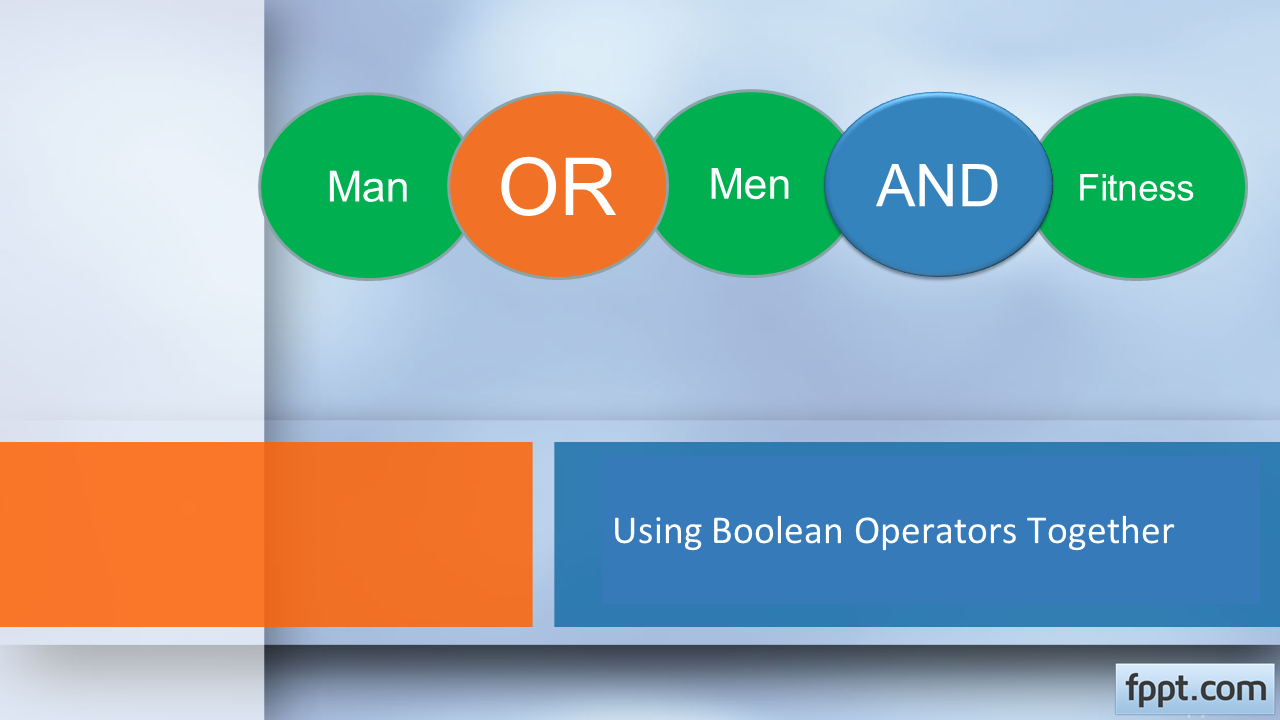
Example 3: Man OR Men AND Fitness NOT Yoga
Using Boolean operators together in this example can help you search on men’s fitness and exclude yoga from the results.
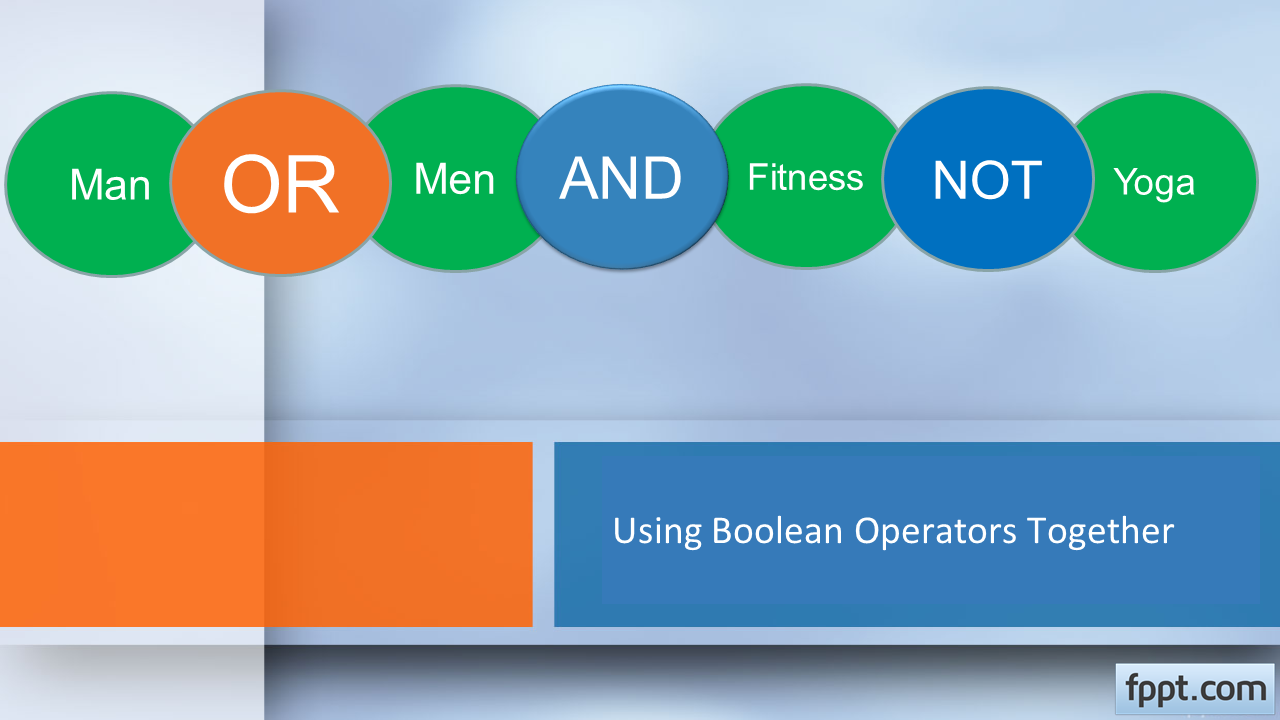
Simple Explanation of Boolean Operators
Here is a video by USF Polytechnic Library which provides a basic explanation about using Boolean Operators.
Demonstration of Boolean Operators in Action
This video by the University of Auckland gives an example of how Boolean Operators affect search results.
Tip: To teach Boolean Operators, you can make a slide deck explaining Boolean Operators or simply show a video to your students or target audience. You can even make a simple PowerPoint presentation and embed a video to make your presentation more comprehensive.
While embedding videos is easy in PowerPoint, you can use the iSpring add-in. Here is a guide on different ways for inserting a video to PowerPoint.
You can of course, also use other presentation apps and PowerPoint alternatives for showcasing your presentation or explaining the concept of Boolean Operators in detail.
